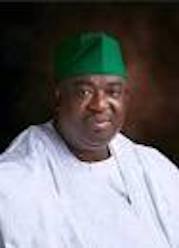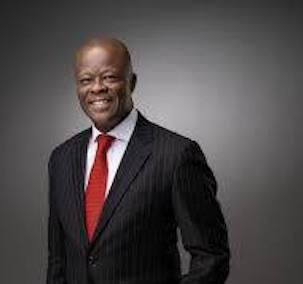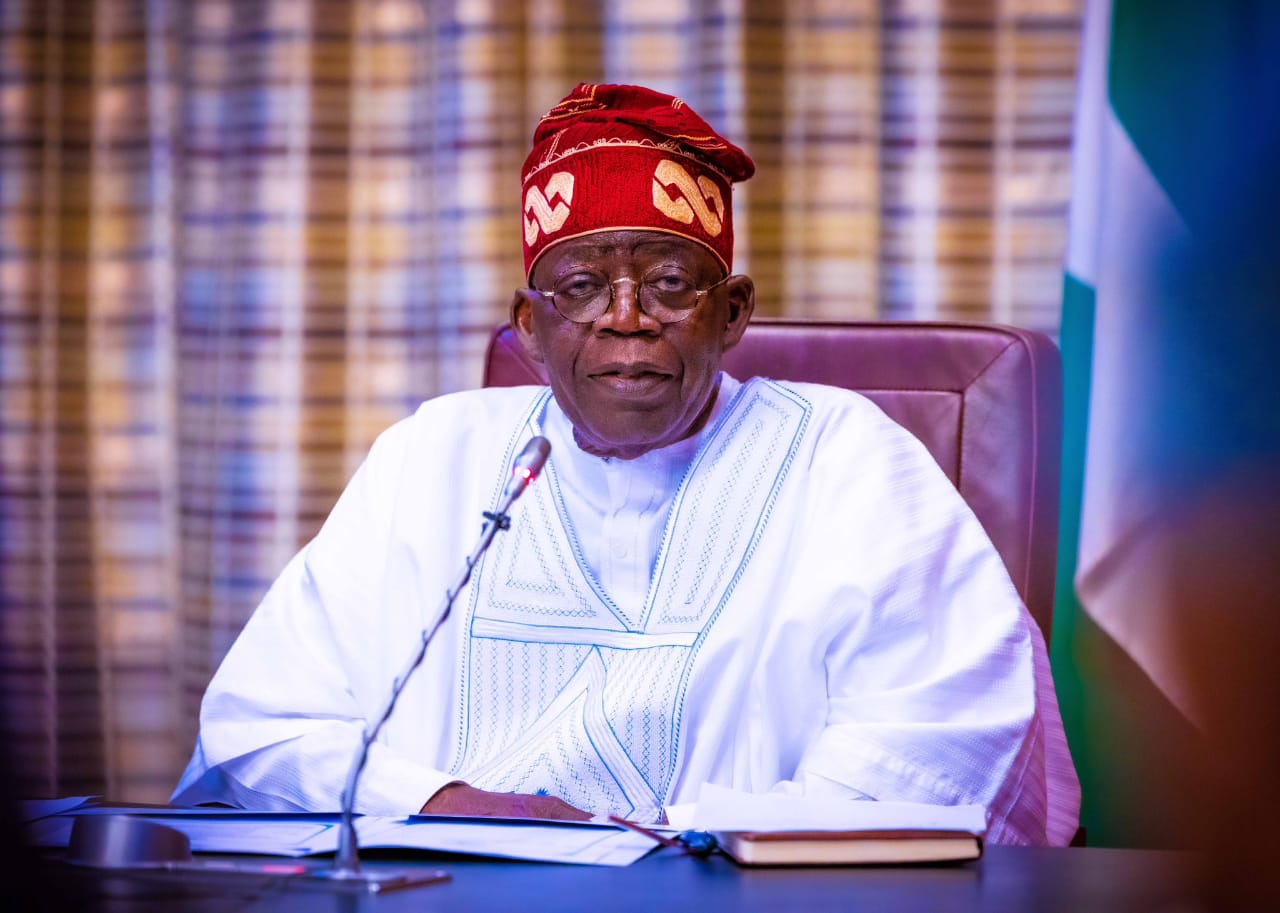COVER
Platrau: APC Begs Supporters to Maintain Peace after Mutfwang’s Sack

–Appeal Court Verdict Temporary Setback – Gov
By David Torough
Plateau chapter of the All Progressives Congress (APC) has begged its members to celebrate the Court of Appeal governorship judgment with modesty and decorum and avoid actions that could puncture peace in the volatile state.
The party’s sate chairman, Rufus Bature, gave the advice in a statement signed by the State Publicity Secretary, Mr Sylvanus Namang.
The statement read, “We appeal to members and supporters of the APC in Plateau to remain calm and refrain from provocative acts that could hurt the peace.”
The chairman advised that the acrimony and disaffection that prevailed in the wake of appeal should be put behind as Plateau State had become a laughing stock.
He called on security agencies to be at alert to avert any act capable of causing a breakdown of law and order.
The Court of Appeal sitting in Abuja on Sunday nullified the election of Governor Caleb Muftwang and ordered the Independent National Electoral Commission (INEC) to recognise Nentawe Goshwe of the All Progressives Congress (APC) as the winner of the March 18 Plateau State governorship election.
The three-member panel, in a unanimous decision held that Muftwang was not validly sponsored by the Peoples Democratic Party (PDP) as provided by Section 285(2) of the Nigerian Constitution.
Justice Elfrieda Williams-Dawodu, who led the panel while delivering the lead judgment, cited Section 177 of the Constitution, noting that the PDP did not validly sponsor Manasseh for the governorship election.
The panel held that the party violated the court order that a valid congress be conducted in the 17 local government areas of the state by conducting congress in only five local government areas and as such, it is a nullity.
The court while dismissing the decision of the Plateau State Governorship Election Petition Tribunal held that the issue of qualification is both a pre-election and a post-election matter, contrary to the findings of the tribunal, which held that the appellant lacked the legal right to contest the validity of the respondent.
The court noted that under Section 134 of the Electoral Act, it is the sole right of a political party to sponsor its candidate having met the necessary requirements to do so.
While evoking Section 136 of the Electoral Act, the court ordered INEC to retrieve the certificate of return issued to Governor Mutfwang and issue a fresh one to Goshwe.
INEC had declared Mutfwang the winner of the March 18 governorship election after he scored 525,299 votes to defeat 17 other candidates, including Goshwe, who polled 481,370.
Goshwe challenged Mutfwang’s election at the tribunal, claiming that the governor was not validly nominated and sponsored by PDP and that PDP had no structure to sponsor any candidate for the governorship election.
He alleged that Mutfwang’s election was not conducted in compliance with the Electoral Act, adding that the PDP candidate did not win the majority of lawful votes cast during the election.
The tribunal headed by Justice R. Irele-Ifijeh dismissed the petition for lacking merit.
Not satisfied with the judgment of the tribunal, the APC candidate approached the Court of Appeal, praying it to declare him winner on grounds that the governor was not qualified to have stood election because he was not validly sponsored and nominated by his party.
The APC candidate told the court in his Notice of Appeal that there was over-voting and non-compliance with the 2022 Electoral Act during the election.
Last week, lead counsel to the appellants, Prof. Goke Olagoke (SAN) urged the court to set aside the judgment of the tribunal and declare his client winner.
He told the court that the appellants’ case is that Governor Mutfwang was not qualified to be in the race because of lack of valid sponsorship by a political party, contrary to section 177 (C) of the 1999 Constitution.
Olagoke said his submission was predicated on various court judgments, including the Court of Appeal’s decisions, adding that the court is bound to abide by the decisions for consistency.
In a motion dated October 30 but filed on November 2, 2023, the governor, through his legal team led by a former Attorney General of the Federation and Minister of Justice (AGF), Godwin Kanu Agabi (SAN), urged the court to strike out some grounds of the appeal for being incompetent.
He equally filed a notice of preliminary objection challenging the jurisdiction of the court to adjudicate on the appeal.
Agabi drew the court’s attention to the fact that the nomination and sponsorship of a candidate for election is purely an internal affair of a political party, which the court has no jurisdiction to entertain.
He submitted that the word qualification used by the petitioner is misleading as the issue raised by the petition bordered on nomination and sponsorship.
The court finally entered judgment in favour of the appellant.
Meanwhile, Mutfwang has described the verdict of the court as a temporary setback.
A statement by the governor’s Director of Press and Public Affairs (DOPPA), Mr Gyang Bere last night maintained that the judgment would not deter Mutfwang’s plans of repositioning the state toward steady growth and development.
Mutfwang expressed strong optimism that his mandate would be restored.
He said, “I want to assure the people of Plateau that the mandate they overwhelmingly gave me will be restored; I have instructed my legal team to file an appeal at the Supreme Court.
“I hereby admonish citizens of the state and supporters of the Peoples Democratic Party (PDP) to remain calm, for as long as God remains on the throne, the mandate of the people will not be tampered with.
“I want to also reiterate my commitment to the rule of law and assure you all that there is light at the end of the tunnel.
”I have unwavering faith in the judiciary and the Constitution of Nigeria.”
He appealed to the citizens of the state to be law abiding, adding that the judgment is a temporary setback.
COVER
Nigeria’s Capital Market Key to Achieving $1trn Economy – FG

By Tony Obiechina, Abuja
Minister of Finance and Coordinating Minister of the Economy Wale Edun has emphasized the crucial role of the capital market in achieving the nation’s ambitious goal of becoming a $1 trillion economy.Edun, who spoke at the Capital Market Committee (CMC) meeting, was represented by Minister of State for Finance; Dr.
Doris Uzoka-Anite highlighted the market’s transformation since 2015, with improvements in governance structures, new products and platforms, stronger regulatory environment, and growing investor participation. According to the Minister, the Implementation of the Capital Market Master Plan (2015-2025), has been instrumental in increasing the market’s contribution to the national economy, developing a sophisticated market structure, and improving competitiveness.Edun said the revised plan prioritizes digitalization, innovation, sustainability, inclusion, and capital formation, aligning with the broader economic reform agenda.He said the passage of the new act modernizes the legal and regulatory framework, streamlines enforcement mechanisms, and provides clarity on emerging areas such as digital assets and crowdfunding.On the challenges and opportunities inherent in the Act, the Minister said, it will help deepen market participation, as well as ensure regulatory coordination remains tight.On the government’s private sector innovation in creating the needed environment for businesses to thrive, the Minister noted that the government is committed to creating an enabling environment for private sector innovation to flourish within a fair and transparent environment.The Minister added that the market is expected to contribute to the economy, serving not only for capital raising but also as a vehicle for wealth creation, economic inclusion, and long-term national resilience.He explained that, with the Securities and Exchange Commission undertaking regulatory reforms, including joining the GBMC Network of IOSCO in promoting and implementing ISSB Standards amongst others, the domestic economy has recorded the fastest GDP growth in about a decade in 2024, driven by a strong fourth quarter and improved fiscal position.Earlier in his speech, the DG SEC, Dr. Emomotimi Agama, emphasized the Commission’s commitment to regulatory reforms and capital market growth.According to him the enactment of the Investment and Securities Act (ISA) 2025 marks the beginning of a transformative new era for the capital market.Agama highlighted the Commission’s efforts to deepen engagement with stakeholders, ensure widespread dissemination and understanding of the new law, and drive innovation and compliance.He also emphasized the importance of restoring investor confidence, bringing timely relief to aggrieved investors, and creating a platform for broad-based participation of Nigerians in wealth creation.The SEC boss noted that the Commission has constituted an implementation team to thoroughly engage with every provision of the ISA 2025 and set up a dedicated sensitization team to deepen public understanding of the new law. A podcast series has also been launched to simplify the ISA 2025 and make it accessible to all Nigerians.Agama highlighted the Nigerian capital market’s impressive performance in 2024, with the NGX All-Share Index increasing by 37.65% and market capitalization growing by 53.39%. He also noted the Commission’s efforts to enhance regulatory efficiency, promote market integrity, and protect investors.The SEC boss emphasized the importance of financial inclusion and investor education, citing the Commission’s initiatives to empower women, youth, and grassroots communities. He also highlighted the Commission’s commitment to technology-driven solutions, including the launch of an e-survey to assess emerging technology adoption in the Nigerian capital market.Agama concluded by emphasizing the Commission’s commitment to fostering growth, transparency, and sustainability in the capital market, and looking forward to fruitful deliberations at the meeting.The highlight of the CMC meeting was the unveiling of the ISA Act 2025 by the minister.COVER
FG Boosts Internet Access, Rolls out $2bn Fibre Network

By David Torough, Abuja
The Presidency on Monday said Nigeria’s Communications and Digital Economy sector attracted $191m in foreign direct investment in Q1 2024, a nine fold increase from $22m in Q1 2023.The Minister of Communications, Innovation and Digital Economy, Bosun Tijani disclosed this during an interview for an upcoming State House documentary marking President Tinubu’s second anniversary.
Special Adviser on Information and Strategy to the President, Bayo Onanuga, revealed in a statement yesterday titled; “Investment in Digital Economy Grows Ninefold, Rollout Of $2 Bn Fibre Optic Infrastructure Begins Q4: Bosun Tijani. ”Tijani highlighted the sector’s robust workforce development, driven by the three Million Technical Talent programme and revealed plans for a $2bn initiative to deploy 90,000 kilometres of fibre optic infrastructure nationwide, starting in Q4 2025.“These foundational reforms, coupled with advancements in artificial intelligence and the startup ecosystem, have positioned Nigeria as a global leader in the digital economy,” Tijani stated.Comparing FDI inflows, he said, “In Q1 2023, the sector had about $22m; by Q1 2024, with this administration well underway, we reached $191m. The trend continued in Q2, increasing from $25m in 2023 to $114 m in 2024.”According to the minister, the 3MTT programme, launched in October 2023 to create a tech-savvy workforce, has already trained over 117,000 Nigerians in digital skills, surpassing its initial target of 30,000.“By last year, we had already moved that to over 117,000. With an additional 35,000 in training, the programme is nearing 10% of its 3 m goal. And in the rest of the time in office, we hope to reach three million,” he said.Regarding connectivity, Tijani announced that Project Bridge, focused on deploying 90,000 kilometres of fibre optic cable, will commence in the fourth quarter.“We are preparing a $2bn investment to ensure every Nigerian can access affordable, high-quality connectivity regardless of location. Increasing connectivity hubs by just 10 per cent could yield a 2.5 per cent GDP growth,” he said.Tijani celebrated Nigeria’s ranking among the world’s top 60 countries for AI readiness and developing a homegrown large language model.He also highlighted the launch of the AI Collective platform, supported by leading partners including Pierre Omidyar, Google, and Microsoft, to foster collaboration and innovation in artificial intelligence.For the first time in the country, the ministry has funded 55 academic researchers to explore technology applications in agriculture, healthcare, and education. In addition, N300m was invested in 10 startups using AI and blockchain to enhance agricultural productivity.On the Nigeria Startup House in San Francisco, an initiative targeting $5 billion in startup funding, Tijani said, “Our goal is to attract $5 billion in investments for Nigerian startups, supported by the Startup Pact and Trade Desk initiatives, which will connect local tech firms to global opportunities and government procurement.”Tijani revealed that over 500 government technologists have been trained in AI and Digital Public Infrastructure, and the groundbreaking Digital Economy Bill has passed its first reading in the National Assembly.To bridge rural connectivity gaps, the Minister projected that 7,000 telecom towers would be deployed, targeting 98 per cent nationwide coverage, adding that the Federal Executive Council had already approved the project.He described the progress on Right-of-Way issues as a game-changer for the country, revealing that 12 states in the federation have adopted zero-rated Right-of-Way policies.According to him, these efforts will support the National Broadband Plan’s goal of achieving 90% penetration by 2025, up from 48% in 2024.He projected the sector’s GDP contribution to rise from 16 per cent to 22 per cent, stating, “If a sector can increase its contribution by three to four per cent to the GDP, we’re about to see the economic growth we’ve not seen before. Technology allows us to bridge the gap between governments and the people.”Tijani said the government is not chasing quick wins. “The results we want to provide for Nigeria are long-lasting reforms that will transform our economy for generations to come”.COVER
Abbas Recommends Israel, Brazil, Vietnam Revenue Diversification Models

By David Torough, Abuja
Speaker of the House of Representatives, Hon. Abass Tajudeen, has declared that Nigeria’s heavy dependence on oil revenue would continue to leave its economy vulnerable, noting that agriculture remained the most viable alternative to achieving resilience.
Abass made the declaration in Abuja on Monday at a one day public hearing on some Bills seeking the establishment of agricultural colleges and institutions. Represented by Chief Whip of the House, Hon. Ibrahim Isiaka, the Speaker said it was within this context that the establishment and expansion of Agricultural Research Institutions across the country are not only necessary but strategically urgent.He said Nigeria should “Emulate countries like Israel, Brazil, and Vietnam that have attained a significant leap in agro development by investing substantially in research and development.”According to him, Brazil’s Embrapa, for instance, reengineered an infertile savannah into a global food hub, just as Vietnam’s targeted agricultural reforms pulled vast populations out of poverty, while Israel continues to innovate in arid-zone agriculture through technology-driven methods.Chairman of the House Committee on Agricultural and Institutions, Hon. Isiaq Abiodun Akinlade, recalled how in the 60s and 70s, the country was among the major exporters of agricultural produce such as cocoa, cotton, palm oil, and groundnuts.The lawmaker noted that Nigeria, with a population size of over 220 million and still growing, is desirous of more agricultural colleges and research institutions to help proffer solutions to issues, “namely climate change, insecurity, pest outbreaks, soil degradation, unskilled labourers, and livestock management.”


















